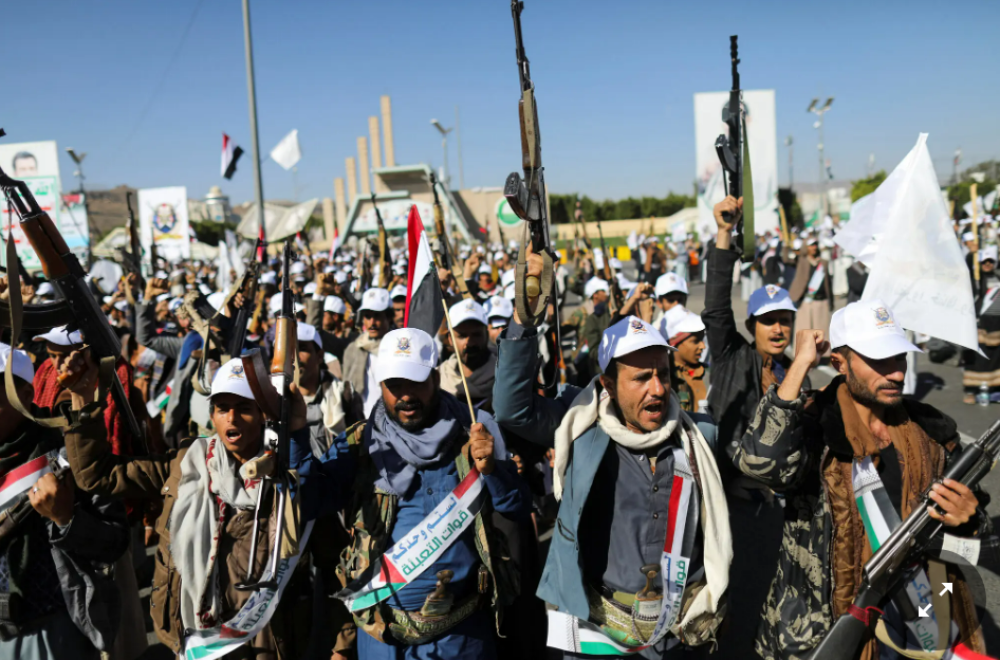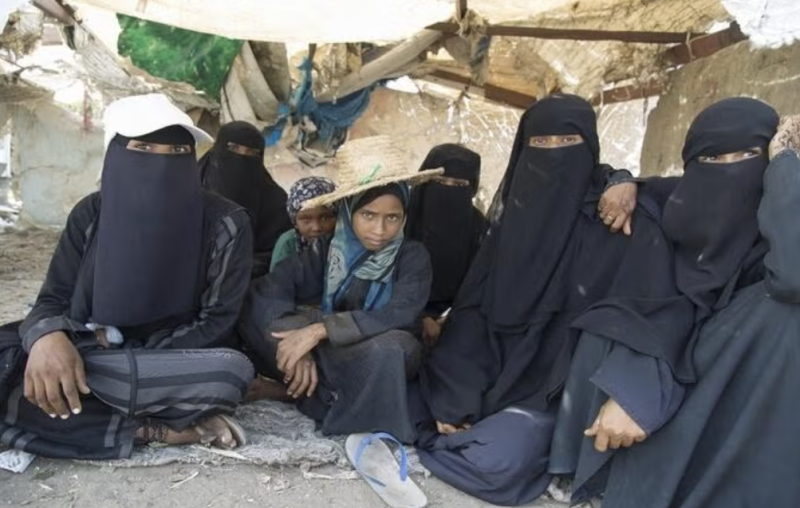Iran Looks to Houthi Proxies to Escalate Fight With Israel


The Houthis, Iranian-backed rebels in Yemen who have launched recent drone and missile attacks on Israeli and American targets, are emerging as an unpredictable and dangerous wild card in the Middle East — the proxies that Iran considers most suited to widening the war with Israel.
Analysts close to the Iranian government said the Houthis’ base in Yemen makes them ideally positioned to escalate fighting in the region, in the hopes of pressuring Israel to end its war with Hamas in Gaza.
The analysts’ assessment tracks with descriptions of a plan by Iran and its network of militias to increase attacks on Israeli and American targets in the region, according to two Iranians affiliated with the Islamic Revolutionary Guards Corps who were not authorized to speak publicly.
The Houthis, the analysts said, are Iran’s chosen proxies because from Yemen they are both close enough to the Red Sea’s strategic waterways to disrupt global shipping, and far enough from Israel to make retaliatory strikes difficult. Unlike Hezbollah, the Iranian-backed militant group that has struck Israel from Lebanon, the Houthis are not beholden to domestic political dynamics — making them effectively accountable to no one.
Two senior Israeli defense officials said their intelligence confirmed that Iran’s leaders were pushing the regional militias to intensify their attacks against Israel. They said Israel’s defense and intelligence circles were alarmed by the recent Houthi attacks and considered the threat serious enough that military intelligence had established a special unit dedicated to threats coming from Yemen. In recent years, they said, Israeli intelligence had also predicted the next war would be fought on multiple fronts, mentioning the Houthis and other Iranian proxies.
Already, the Houthis have used their proximity to major shipping lanes to attack commercial vessels and threaten U.S. warships. A further escalation along the same routes could disrupt global shipping, analysts said.
“We think Houthis in Yemen will become more of a threat to Israel in the long term than Hamas or even Hezbollah,” said Nasser Imani, a political analyst in Tehran who is close to the government. “Iran considers them a major player and part of the collective strategy of the resistance axis.”
On Thursday, John F. Kirby, a national security spokesman for President Biden, said the Houthi attacks threatened to escalate tensions in the region: “It’s clearly a risk to the potential widening and deepening of the conflict.”
The network of Iran-backed regional militias, known as the axis of resistance, includes Hamas and Palestinian Islamic Jihad in Gaza, Hezbollah in Lebanon and the Houthis in Yemen, as well as several militia groups in Iraq and Syria. Since Israel declared war on Hamas after the group launched a terrorist attack on southern Israel on Oct. 7, other axis members have opened secondary fronts against Israel in a restrained manner, stopping short of igniting an all-out war. Militias in Iraq and Syria have attacked American military bases more than 70 times with drones and rockets.
As Israel expands its war in Gaza — in which more than 15,000 people, many of them women and children, have been killed, according to Gazan health officials — the axis groups have concluded they must significantly raise the prospect of a regional war to force a cease-fire, according to the Iranians affiliated with the Revolutionary Guards.
The new plan includes Houthi attacks on Israeli and American-owned vessels operating in the Red Sea, according to the Iranians affiliated with the Guards. The Iran-backed militias in Iraq and Syria would also increase their attacks on American military bases with the intent to cause harm and damage, they said.
An additional aim, they added, is to destabilize maritime security, global shipping and energy supplies.
Iran’s Revolutionary Guards are providing the Houthis with intelligence to help identify Israeli-owned vessels in the Red Sea, said the two Iranians.
Western officials have said the intelligence is gathered by a ship operated by the Guards near the coast of Yemen. More recently, both a senior Western defense official and one of the Iranians familiar with the planning said Iran also had set up an intelligence outpost in the south of Iran to pass along information on Israeli ships to Houthis.
Iran’s foreign minister, Hossein Amir Abdollahian, has denied, publicly and in a recent interview with The New York Times, that Iran controls the Houthis and other militia groups. But senior Iranian military officials and advisers have said in public speeches and in social media posts that Iran is arming, supporting and coordinating with the militia.

By/April Longley Alley* Among the broader regional repercussions of the Gaza ceasefire in October, one of the most signifi…

Al-Hodeidah – Local sources in Yemen’s Al-Hodeidah province have disclosed that Houthi militias are resorting to new methods of exploit…

By Jamal Al-Awadhi For years, Yemen has been treated by the international community as a marginal conflict an unfortunate…